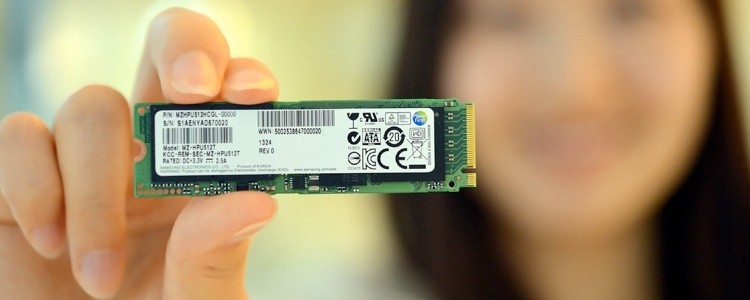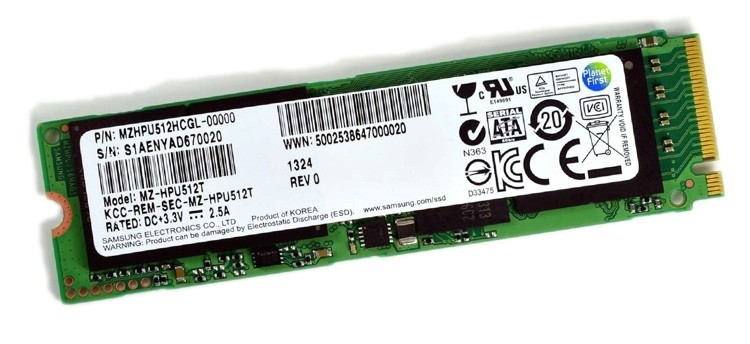
Samsung already makes one of the fastest and most reliable SATA-based solid-state drives for desktops and laptops. Now, the company is looking to bring even faster speeds while enabling thinner form factors with a new line of PCI Express (PCIe) storage offerings. Measuring just 80mm by 20mm and weighing a measly 6g, the new XP941 comes in the M.2 format and can achieve sequential read speeds of up to 1400MBps.
That’s the highest speed offered by the PCIe 2.0 interface and translates to about 2.5 times faster than the fastest SATA SSDs. To put this into perspective, Samsung says the drive can read 500GB of data or 100 HD movies as large as 5GB in only six minutes, or 10 HD movies at 5GB in 36 seconds.
In its press announcement the company said it began providing the XP941 to major notebook makers earlier this quarter in 512GB, 256GB, and 128GB capacities. Although no names were given a recent iFixIt teardown revealed Apple is using Samsung’s SSDs for their recently refreshed MacBook Air line.
Although PCIe storage has been primarily used in enterprise applications, by mass producing the new XP941 Samsung is bringing the technology closer to mainstream adoption. Besides the benefits from a performance point of view, the smaller footprint also frees up more space for notebook battery.
